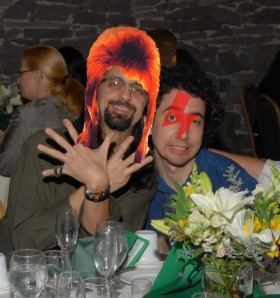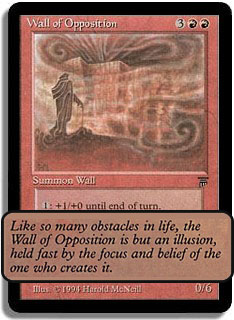Last Saturday, I was called to play tuba in a local orchestra to fill out the brass section. The repertoire for the evening was Prokofiev’s Romeo and Juliet Suite #2, and Sibelius Symphony #2, neither of which I had played before. Both of those pieces have fairly exposed tuba parts, which can be scary, but it was an opportunity I didn’t want to pass up. When I sat down to play, though, I had to face one of my demons: Totidemcorosrequiemaphobia.
That’s a lot of time silently counting, watching, and waiting to enter. That fortissimo C at measure 100 comes from out of nowhere, so there’s no room for error. Come in too late and you missed your entrance. In too early… I don’t even want to think about it. I’m out of practice playing this kind of music, so it’s not difficult at all to be off by a measure or two, even with all the cues from the other instruments. This made for a fun, but very stressful performance.
More disturbing than the actual fear of the performance was another fear that was growing inside me. I started thinking about how I was hired to play in this concert, and as a result there were certain expectations of my abilities. Any mistakes I made in something as simple as counting rests were unacceptable. So if I happened to come in early or miss an entrance, I wasn’t just embarrassing myself by playing out of turn; I was also failing to be the professional musician I was hired to be. And that would hurt much worse.
The next day I went to a Magic the Gathering tournament celebrating the release of a new set. I traditionally do very well in these release tournaments, so imagine my dismay when after two rounds I was knocked out of contention. My thought process took on an eerie similarity to the one from the night before: I’m a great player, but I lost terribly. This calls into question whether I’m actually a great player.
Both of these experiences deal with how I perceive myself and the rigid nature of my identity. My self-perception is so tied into what I have defined as being a “professional musician,” or a “good gamer,” that when that perception becomes challenged, my first line of thinking is that I’m incorrect about my perception; that I’m not actually professional or good. And that sooner or later, I’ll be called out for not being what I claim to be.
It’s easy to get locked into that way of thinking, but it’s not the only way the situations can be approached. Let’s break it down.
Here’s my initial take:
A) I am a professional musician.
B) A professional musician does not make mistakes and is always reliable (no snickering!).
C) I made a mistake counting rests.
D) Therefore I am not a professional musician.
The only thing that is a fact in this logical progression is C. Everything else is an arbitrary perception. What if I took this tack:
A) I am a professional musician.
B) A professional musician always strives for the best sound possible and plays as well as possible.
C) I made a mistake counting rests.
D) This has no bearing on whether I’m a professional musician or not.
E) Therefore I am still a professional musician.
This is definitely a more flexible and kinder approach. I’m not sure about the accuracy of it, but it is another way of thinking about it.
Let’s try this one:
A) Why do I care whether I or another person thinks I fit the description of a “professional musician?”
B) While I’m busy worrying about this, I’m missing the opportunity to enjoy playing music.
C) How about I just prepare as well as I can, play as well as I can in the moment, and then anyone who wants to define what I am can do as they please.
Ultimately, I have little control over how people perceive me and my playing. I can practice for countless hours and hone my skills to a razor sharp point, and anyone can still think whatever they want. However, I do have some control over how I perceive myself. Instead of judging non-stop, maybe I can just let it be what it is, and find happiness and gratitude in that. I have a feeling that letting go of that anxiety can only make me a better player anyway.
We can take the same approach to Magic. I think:
A) I am a good Magic player.
B) A good Magic player wins consistently.
C) I lost consistently.
D) Therefore I am not a good Magic player.
Instead I could think:
A) I am a good Magic player.
B) A good Magic player wins more than they lose.
C) I lost this tournament.
D) This is just one of many tournaments. I still often win.
E) Therefore I am still a good Magic player.
But it might be more beneficial to think:
A) What tangible benefits do I get from being a “good Magic player?”
B) This game has brought me so much joy. Being a “good Magic player” is a tiny part of that.
C) How about I play as well as I can, and enjoy myself as much as possible, and anyone who wants to judge my worth as a player is welcome to do so.
The trick here is to realize that my identity is not as closely tied into these arbitrary definitions as I might think. I am a constantly evolving and changing individual with plenty of strengths as well as areas to improve. It’s important for me to step back from time to time and admire the picture that is my life, despite any shortcomings. Or maybe even understand that the shortcomings are a part that add complexity and reality to who I am.
My friend Michelle recently posted a blog by Bethany Butzer about this titled What Do You Want to Be When You Grow Up? Well, it’s not about gaming and tuba playing, but rather about how we identify ourselves and how that identity can be a hindrance to our happiness if we perceive it as a rigid truth. The blog post really spoke to all my own internal dialogues of the moment, so naturally, I recommend it as supplemental reading. Hey, while we’re on the subject, read The Dubliners story Araby by James Joyce, which is about that shattering moment when we realize that our perception of ourselves and the world does not match up to reality.
So remember when you’re feeling crushed by your own disappointment in yourself that there are alternative approaches. There is no black and white terminal demarcation of who you are. There are infinite shades of grey that we can be a part of, and the trick is to find the joy in every one of them.






